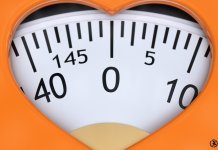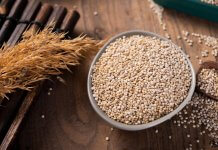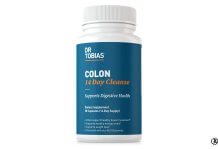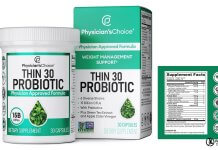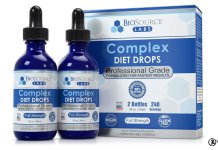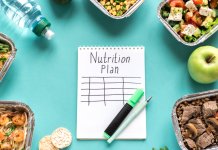I get commissions for purchases made through links on the site. As an Amazon and Clickbank Associate I earn from qualifying purchases. Learn more.
There are various reasons for postpartum weight gain: increased stress, thyroid problems, sleeplessness, and lifestyle changes. Taking care of a newborn can be stressful, especially if you’re a first-time mother. Managing weight after giving birth is an ideal fitness goal for women opting to become pregnant in the future. Approximately most women will gain 25 pounds to 35 pounds during pregnancy. Weight retention can increase your risk of developing chronic health conditions, including cardiovascular diseases, stroke, and type 2 diabetes. There are various factors associated with postpartum weight gains, such as low physical activity, smoking cessation, high pre-pregnancy body mass index (1), primiparity, and short breastfeeding period. Based on science, pregnancy weight gain comprises uterus enlargement, placenta, extra fat stores, the fetus, blood, and amniotic fluid. Scientifically, the extra fat is a form of energy reserve for breastfeeding and birth. Below are the top tips on how to lose weight after a pregnancy:
Estimated reading time: 11 minutes
Table of contents
Healthy Eating Habits for New Moms
As a new mom, taking care of your health through proper nutrition is crucial for your well-being and for providing the best care to your baby. Here are some healthy eating habits to consider:
- Balanced Diet: Focus on a balanced diet that includes a variety of foods from all food groups. This ensures you get a wide range of nutrients.
- Nutrient-Dense Foods: Opt for nutrient-dense foods such as fruits, vegetables, whole grains, lean proteins, and dairy or dairy alternatives. These foods provide essential vitamins and minerals.
- Portion Control: Pay attention to portion sizes. Eating appropriate portions helps prevent overeating and supports healthy weight management.
- Frequent Meals: Aim for regular, balanced meals and snacks throughout the day to maintain steady energy levels. Skipping meals can lead to overeating later on.
- Hydration: Drink plenty of water throughout the day to stay hydrated, especially if you’re breastfeeding. Water is vital for milk production and overall health.
- Limit Processed Foods: Minimize processed and sugary foods. These can lead to energy spikes and crashes and may not provide the nutrients you and your baby need.
- Healthy Snacks: Choose nutritious snacks like fresh fruit, yogurt, nuts, or whole-grain crackers. Healthy snacks can help satisfy cravings without compromising your nutrition.
- Include Fiber: Foods high in fiber, such as whole grains, legumes, and vegetables, support digestion and help prevent constipation, which can be common postpartum.
- Healthy Fats: Incorporate sources of healthy fats like avocados, nuts, seeds, and fatty fish. These fats are important for brain health and can help with mood stability.
- Limit Caffeine and Alcohol: Be mindful of your caffeine intake if you’re breastfeeding. Limit alcohol consumption, and if you choose to drink, do so in moderation and plan it around breastfeeding sessions.
- Consult a Dietitian: If you have specific dietary concerns or questions, consider consulting a registered dietitian who specializes in postpartum nutrition.
- Meal Preparation: Prepare meals and snacks in advance when possible. Having healthy options readily available can prevent reaching for less nutritious choices when you’re busy.
- Listen to Your Body: Pay attention to hunger and fullness cues. Eat when you’re hungry and stop when you’re satisfied.
- Multivitamin: If your doctor recommends it, take a postnatal multivitamin to ensure you’re meeting your nutritional needs, especially if you’re breastfeeding.
- Be Patient: Remember that it’s normal for your body to take time to recover after childbirth. Focus on nourishing yourself rather than rushing into restrictive diets.
Healthy eating habits are not only essential for your own well-being but also for providing your baby with the best possible start in life. Prioritizing nutrition during the postpartum period can help you regain your strength and energy as you embrace motherhood.
Tips How to Lose Weight After Pregnancy
- Protetox – Protetox is a natural weight loss formula that helps you lose weight and keep it off. This is a detailed beginner’s guide to Protetox, including a list of ingredients and side effects.
- Manage Your Calorie Intake
Calories are among the key causes of weight gain. Monitoring your calorie intake can be overwhelming, but it’s worth it. Currently, there are numerous online apps that’ll help you see the number of proteins, vitamins, calories, fat, fiber, carbs, and minerals you’re consuming. Having clear information about your calorie intake, you’ll devise a concrete plan for managing your carbohydrate intake. Some of the carbs that you should avoid to manage your weight after giving birth include rice, pasta, white bread, etc.
- Get Hydrated
According to numerous studies, drinking sufficient water will play a vital role in your weight loss journey. A normal human being should drink at least eight glasses of water. If you’re engaging in physical exercises, you should consider drinking more than eight glasses of water to replace water lost in the form of sweat. Being hydrated will stimulate metabolism and increase your sense of fullness. This will lower your cravings for unhealthy foods that can increase your weight. Metabolism is the process through which a human body converts foods into energy. Therefore, increased metabolism will lower the risk of excess calories and fat in the body, thus aiding weight management. New mothers should drink excess water to replace fluids lost during childbirth and milk production.
- Avoid Alcohol
Limited amounts of red wine may have various health benefits, including lower bad cholesterol, reducing the risk of cancer, keeping the heart healthy, being rich in antioxidants, regulating blood sugar, and keeping memory sharp. However, excessive consumption of alcohol is associated with weight gain. Alcohol contains numerous calories that aid weight gain and belly fat. Calories in alcohol are considered empty because they don’t have any nutritional value. Breastfeeding mothers should avoid alcohol at all costs because it isn’t safe for the child. According to statistics, heavy alcohol consumption is associated with a 31% risk of maintaining obesity and 41% of becoming obese. In addition, there’s a 36% chance of the transition from overweight to obesity. Obesity can be linked to various health risks, including fatty liver disease, sleep apnea, stroke, heart disease, high blood pressure, etc. Avoiding alcohol will increase your odds of obtaining your fitness goals.
- Avoid Refined Carbs
You should avoid not only refined carbs but also sugar-sweetened foods. These foods are low in nutrients but high in calories. As previously mentioned, calories increase your risk of gaining unwanted weight. Unlike weight gain, consuming refined carbs and sugar-sweetened foods will increase your risk of developing some cancers, cardiovascular problems, diabetes, and cognitive decline. Some of the most common sources of sugary foods and drinks are cakes, sugary drinks, pastries, white flour, fruit juice, biscuits, and sweet spreads. In order to pick the right products, you should evaluate the food level before you make a purchase. Instead of refined foods, new mothers should opt for whole foods, including meat, legumes, vegetables, yogurt, fish, eggs, fruits, nuts, etc.
- Consume Healthy Proteins
Incorporating healthy proteins into your diet can decrease appetite, boost metabolism, and lower calorie intake. Based on research, protein-dense foods have a great thermic effect, especially when compared to other nutrients. This means your body will take a long period of time to digest proteins, unlike other nutrients. Proteins will decrease appetite, thus lowering your odds of consuming junk foods from now and then. This will aid weight management because you won’t consume unnecessary calories. Based on science, protein will suppress appetite by increasing the production of two key hormones: GLP-1 and GLP hormones. In addition, protein-dense foods will reduce the hormone ghrelin, which is a hunger-reducing hormone. Some of the sources of proteins for women after giving birth include the following:
– Dairy
– Lean meat
– Legumes
– Eggs
– Nuts and seeds
– Low mercury fish - Set Realistic Goals
In order to manage your weight loss journey, you need to come up with smart and realistic fitness goals. Losing weight after giving birth is a dynamic process. Approximately, you’ll take at least one year to meet your weight loss goals after pregnancy, depending on the amount of weight gained during pregnancy. For instance, you can lose at least 10 pounds of unwanted weight during a single year. Having a great plan that involves exercise and a balanced diet, you’ll succeed in the weight loss journey. Don’t set goals that aren’t achievable because they’ll frustrate you and make you quit the weight loss program.
- Reduce the Intake of Highly Processed Foods
Unlike processed foods, whole foods are rich in fiber and protein, which play a significant role in postpartum weight management. Highly processed foods aren’t healthy because they’re great sources of calories. Increase intake of calorie-dense foods will increase your weight rather than manage it. In addition, processed foods are high in unhealthy fats, sugar, and salt. Some of the unhealthy processed foods that you should avoid after giving birth include boxed mixes, fast foods, sugary cereals, candy, chips, prepackaged foods, baked goods, cookies, and processed cheeses. Instead of consuming processed foods, you should opt for whole, fresh, and nutrient-dense foods.
- Get Enough Sleep
Adequate sleep and a healthy sleep pattern will help women reduce postpartum weight gain. There are various ways through which sleep will aid weight loss:
– Lower the risk of late-night snacking
– Improved decision-making abilities, especially when it comes to food choices
– Moderates your appetite
– Boost metabolism
– Enhances the physical activity
Insufficient sleep can lower your physical activity, thus lowering your ability to reduce unwanted weight. Regular exercise will improve the overall quality of your sleep. When it comes to sleep and metabolism, there are various factors that may influence the efficiency of the weight management program, including muscle mass, age, height, and weight. Lack of sleep can suppress fat oxidation, thus increasing calories in the body. This is because your body won’t convert fat into energy. Irregular sleep patterns will increase your risk of late-night snacking, which can increase your risk. Therefore, having sufficient sleep will help you prevent late-night snacking, thus aiding weight loss. Additionally, sleep deprivation may lead to food cravings and increased hunger. - Exercise Regularly
Exercises are among the ideal postpartum weight management ways. For instance, strength training will help you retain muscle mass and lose weight at the same time. Combining resistance training and diet will accelerate the process of managing weight. Finding an ideal time to exercise with a child can be overwhelming, but there are gyms that offer sessions for new mothers as well as their babies. Physical activity will burn excess calories in the body or convert them to energy.
- Consume Healthy Snacks
The foods that you’ve around can have a major impact on your weight management journey. Instead of stocking your house with processed foods, opt for healthy snacks, such as spiced nuts, homemade granola, dried fruits, cut vegetables, seaweed snacks, air-popped popcorn, etc.
Breastfeeding and Weight Loss
Breastfeeding is a beautiful and natural way to nourish your baby, but it also has some surprising benefits for postpartum weight loss. Here’s how breastfeeding can aid in shedding those pregnancy pounds:
- Calorie Burn: Breastfeeding burns extra calories. Producing breast milk requires energy, and your body taps into its fat stores to meet this demand. On average, breastfeeding can burn around 300-500 extra calories per day.
- Uterine Contractions: Breastfeeding triggers uterine contractions, helping your uterus return to its pre-pregnancy size more quickly. This can contribute to a flatter abdominal area.
- Hormonal Changes: Breastfeeding prompts the release of the hormone oxytocin, which can help your uterus contract and reduce postpartum bleeding. Oxytocin also plays a role in promoting a sense of bonding between you and your baby.
- Delayed Menstruation: For many breastfeeding mothers, the return of their menstrual cycle is delayed. This means fewer periods and less blood loss, potentially aiding in weight loss.
- Appetite Regulation: Some breastfeeding mothers find that their appetite is naturally regulated. Hormones released during breastfeeding can help curb excessive hunger, making it easier to control calorie intake.
- Healthy Food Choices: Breastfeeding often encourages mothers to make healthier food choices because they are aware of the impact their diet has on their baby’s nutrition. This can lead to more mindful eating habits.
- Postpartum Recovery: Breastfeeding promotes postpartum healing by increasing blood flow to the breast and uterine tissues. This enhanced circulation can aid in overall recovery.
However, it’s important to remember that weight loss during breastfeeding should be gradual and should not compromise the quality or quantity of breast milk produced. Here are some key considerations:
- Balanced Diet: While breastfeeding, focus on a balanced diet rich in nutrients. Include a variety of foods to ensure you and your baby get the necessary vitamins and minerals.
- Adequate Hydration: Stay well-hydrated to support milk production. Aim to drink water throughout the day.
- Moderate Exercise: Gentle, postpartum-appropriate exercises can complement breastfeeding for weight loss. Consult your healthcare provider before starting any new exercise routine.
- Slow and Steady: Healthy weight loss during breastfeeding should be gradual, at a rate of about 1-2 pounds per week. Rapid weight loss can affect milk supply.
- Consult a Professional: If you’re concerned about weight loss while breastfeeding, consider consulting a registered dietitian or lactation consultant. They can provide personalized guidance.
Remember, every body is different, and the rate of postpartum weight loss can vary. Focus on nourishing yourself and providing your baby with the best care possible. Breastfeeding is a journey, and the health of both you and your little one should always come first.
Frequently Asked Questions (FAQs)
Baby weight is the unwanted weight that remains after you give birth. As previously mentioned, pregnancy weight gain comprises uterus enlargement, amniotic fluid, the fetus, blood, placenta, and extra fat stores. The extra fat stored is the main culprit for baby weight.
There isn’t an exact period for reducing postpartum weight gain. But, you’ll start to see changes within a period of six months and one year. You should adhere to the weight management program if you opt to achieve your fitness goals promptly. Some women will take up to two years; therefore, you should never give up.
Women are different, but in most cases, women tend to lose approximately thirteen to twenty pounds of weight.
There are various ways that’ll help you get rid of belly fat, including sufficient sleep, regular exercising, eating a healthy diet, avoiding unhealthy habits, etc. Most of the above-listed tips for managing postpartum weight will help you reduce belly fat.
- Top 6 Best Elliptical Machines Under 200$ – If you’re in the market looking for the best elliptical machines under 200, we are here to help. There are so many options in the market, and it can be challenging to spot a suitable training machine.
Conclusion
It’s important to lose weight after giving birth. There are various ways of getting rid of postpartum weight gain. Therefore, choose ways that suit your tastes and preferences. Some of the ways to manage weight after delivery are to drink enough water, consume healthy snacks, exercise regularly, get enough sleep, set realistic goals, consume proteins, etc.



